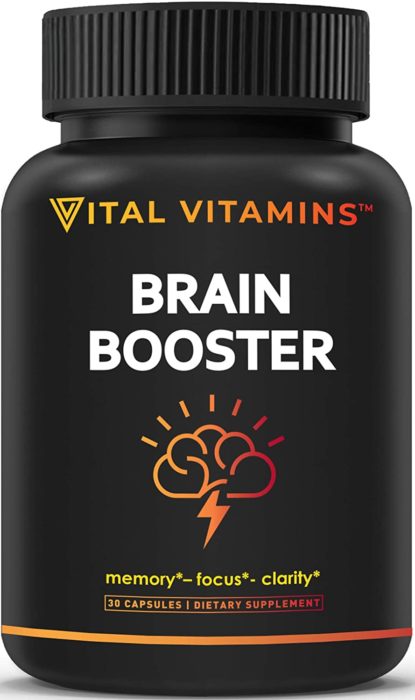Sep 24 2020
Study Finds More Adulterated Supplements
 Drugs are regulated in most countries for a reason. They can have powerful effects on the body, can be particularly risky or are incompatible with certain diseases, and can interact with other drugs. Dosages also need to be determined and monitored. So most countries have concluded that prescriptions of powerful drugs should be monitored by physicians who have expertise in their effects and interactions. Some drugs are deemed safe enough that they can be taken over the counter without a prescription, usually in restricted doses, but most require a prescription. Further, before going on the market drug manufacturers have to thoroughly study a drug’s pharmacological activity and determine that it is safe and effective for the conditions claimed. There is a balance here of risk vs benefit – making useful drugs available while taking precautions to minimize the risk of negative outcomes.
Drugs are regulated in most countries for a reason. They can have powerful effects on the body, can be particularly risky or are incompatible with certain diseases, and can interact with other drugs. Dosages also need to be determined and monitored. So most countries have concluded that prescriptions of powerful drugs should be monitored by physicians who have expertise in their effects and interactions. Some drugs are deemed safe enough that they can be taken over the counter without a prescription, usually in restricted doses, but most require a prescription. Further, before going on the market drug manufacturers have to thoroughly study a drug’s pharmacological activity and determine that it is safe and effective for the conditions claimed. There is a balance here of risk vs benefit – making useful drugs available while taking precautions to minimize the risk of negative outcomes.
But in the US and some other countries there is a parallel system of drug regulation that does not do this. Companies are able to sell drugs without studying their pharmacology, and without providing evidence of safety or effectiveness. Many studies have shown that these alternate drugs are commonly adulterated with unlisted ingredients, often don’t have the key ingredient on the label and have substitutions, are contaminated with sometimes toxic substances, and have little quality control in terms of dosing. Often the active ingredients, if any, are not even known, and we have little knowledge about organ toxicity or drug-drug interactions.
This alternate drug regulatory scheme refers to supplements. In the US, since the 1994 DSHEA law, supplements can include herbal drugs and can make health claims, with the only restriction that they cannot name a disease specifically. So the industry has become expert at making sort-of claims, like boosting the immune system or supporting healthy brain function. There is no evidence that granting expanded over-the-counter access to a wide list of herbal drugs has been a positive things for American’s health. Rather, this is a multi-billion dollar predatory industry that, if anything, has worsened overall public health (because they contain risk with no proven benefit). Real nutritional supplements, like vitamins, minerals, and other micronutrients, were already on the market. What DSHEA added was open access to these dirty and poorly controlled drugs.
It is no surprise, therefore, that a recent study published in Neurology Clinical Practice found rampant adulteration in supplements marketed as “brain boosters”. There are no herbal supplements proven to improve brain function. The most famous one making this claim is Gingko biloba, but the best studies show no benefit. There really wasn’t any plausible reason to suspect a benefit, just clever marketing. So supplement sellers, who apparently know their product is worthless, frequently resort to adulterating their herbs with actual drugs. This is what the study found- they looked at 10 herbal supplements claiming to boost brain function and found:
In the 10 products tested, omberacteam and aniracetam were detected along with 3 additional unapproved drugs (i.e., phenibut, vinpocetine and picamilon). By consuming recommended serving sizes, consumers could be exposed to pharmaceutical-level dosages of drugs…Several detected drugs were not declared on the label, and several declared drugs were not detected in the products. For those products with drug quantities provided on the labels, 75% (9/12) of declared quantities were inaccurate. Consumers could be exposed to up to four-fold greater than pharmaceutical dosages and as many as 4 unapproved drugs when using individual products.
All 10 supplements contained one or more unapproved drugs. Some of these drugs are known to be unsafe in pregnancy, and they all have significant side effects and potential drug-drug interactions. In other words – they are typical drugs, despite being marketed as supplements. The labels did not accurately reflect the content of these products, and the doses were often atypical and exceeded standard recommendations.
In response the FDA did what they usually do – issued strongly worded warning letters. Such letters result in products being voluntarily withdrawn only about 50% of the time. So not only does the FDA not have the ability to do pre-market evaluation of these products, their power is limited in removing them from the market.
Clearly the supplement industry is broken, and we cannot count on self-regulation. It is beyond time that we repeal or revise DSHEA and reinstate sensible regulations of all drugs, including herbal or “natural” drugs.






